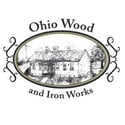What are your names and what do you do?
Sam (S): My name is Sam Krantz, and this is my daughter Jodi, and together we operate Ohio Wood and Iron Works. We’re based in Dover, Ohio, and we’ve been working together for a long time. I handle the wood and iron, and Jodi handles the logistics, marketing, customer service, and orders.
How did you get started working with wood and iron?
S: All my life I have been involved in building in one fashion or another. When ’08 and ’09 hit, my principle business, which was remodeling and room additions and cabinetwork and generally higher end carpentry, dried up with the economy. We had to find something to do to generate income, to earn a living.
I love building furniture, but you can’t ship furniture; it’s not cost effective. So that market was not there for us. So we had to come up with something else. Jodi kept searching and asking friends and we found Etsy. Ironwork has always been in the back of my mind anyway, so we started that.
What is most important to you in a material or product?
S: Quality. You can’t make something good, useful, or beautiful out of junk. You just can’t. I’ve tried. It doesn’t work, so if you’re going to put the time and effort into it, then you have to start with the best materials you can get.
How would you define quality?
S: It’s multifaceted because if it looks good, but it’s not made right, then it won’t hold up and it won’t do its job. It won’t last. You’re going to end up with an unsatisfied customer and negative feedback, or even no more orders. We do get quite a few repeat customers. But the scale and proportion has to be right, the fit and finish has to be right, and over the years, your eye will tell you if its right or not. We use native, North American hardwoods generally speaking because they’re easy to get for us. They’re a local, quality product.
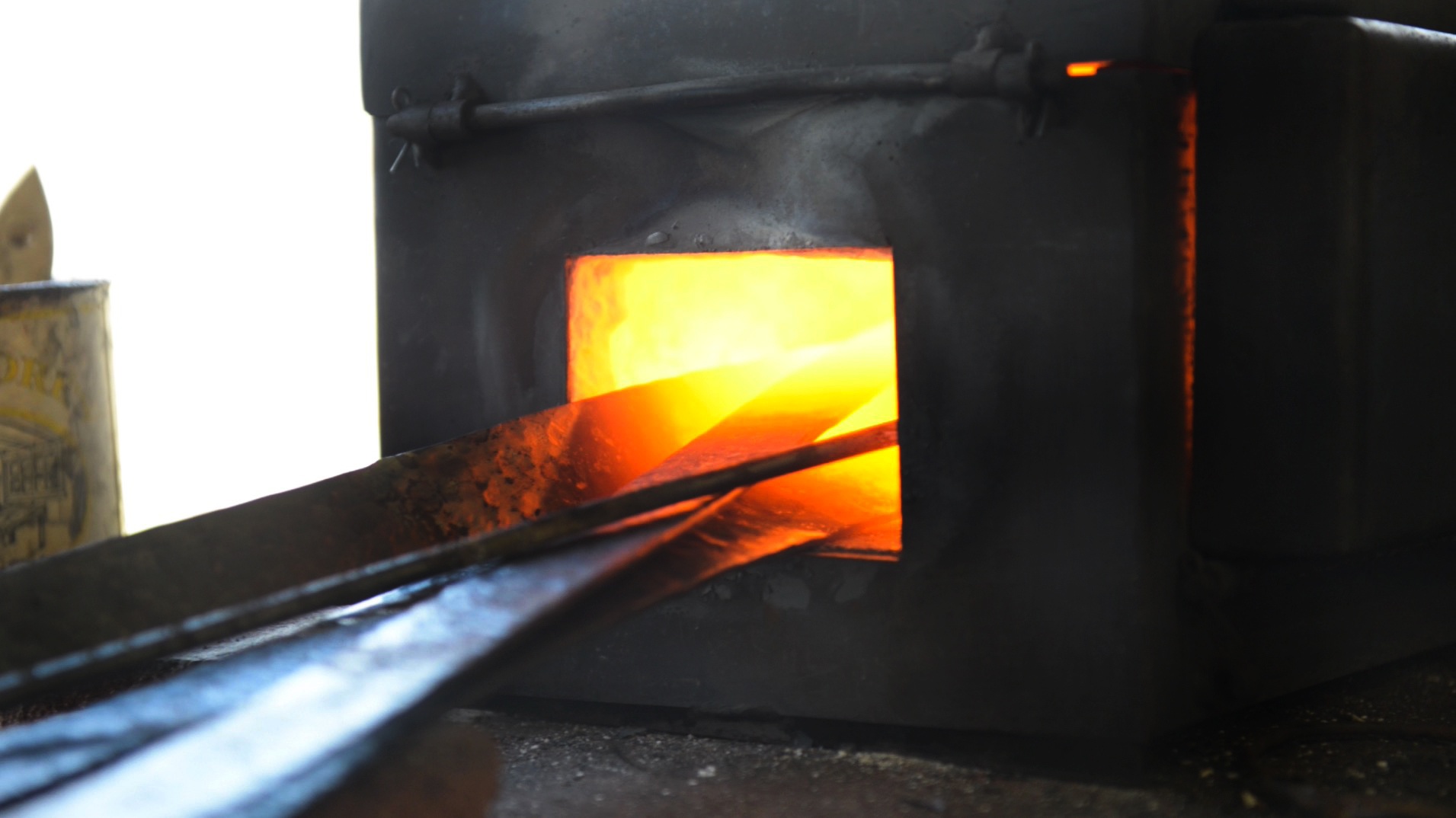
What kind of items do you make?
S: We work in all different wood species (cherry, oak, walnut, etc.) and we use all different stains. Our most popular product is a mail organizer, and it has four rings on it to hang your keys as well. As far as iron goes, we make herb-drying racks that are very simple. We did a custom herb-drying rack for a $5 million house in Malibu, California. We also make iron utensils. Something we developed is a cross that we forge out of half-inch square steel and we make it 3 dimensional, but they’re only a quarter inch thick. Some have a hole in them, some are solid, and we can do different textures and finishes, whatever the customer is interested in.
We got involved with a designer in California, and she had a design for wire frame lampshades that no ones ever seen before, not available on the market. They go into a lot of high-end restaurants and bistros and bars. We did a bar for a company that looks like a carpenter’s woodcutting bench, and they sent us a picture of it, and they have the bar set up in their office and they had all their liquor set up. That’s the cool thing.
Jodi (J): Sometimes, he’ll make something on a whim and we’ll put it online to see if there’s any interest, and it turns out to be a bestseller. Other times, we make something we think is going to be really popular but it doesn’t turn out that way. Before lunch one day, he made a triangle, steel dinner bell. We thought, “Who’s going to buy that?” But we had people all over ranches out west that were so excited to find this dinner bell.
What is your process? How does it differ between an original piece and a custom piece?
S: There is a strong arts side in the ironwork, and admittedly, I don’t have a strong art side. What I do is seek inspiration either from other people’s work or a need that other people have. We had one lady who wanted to hang quilts on the wall, and she wanted to do three of them in succession on the wall, and she liked our ironwork. So through a combination of her sketches and I don’t know how many emails back and forth, we were able to come up with a design that she liked and we made it.
For me, that’s the fun: satisfying and fulfilling somebody’s need or wish or desire or design that they cant get anywhere else.
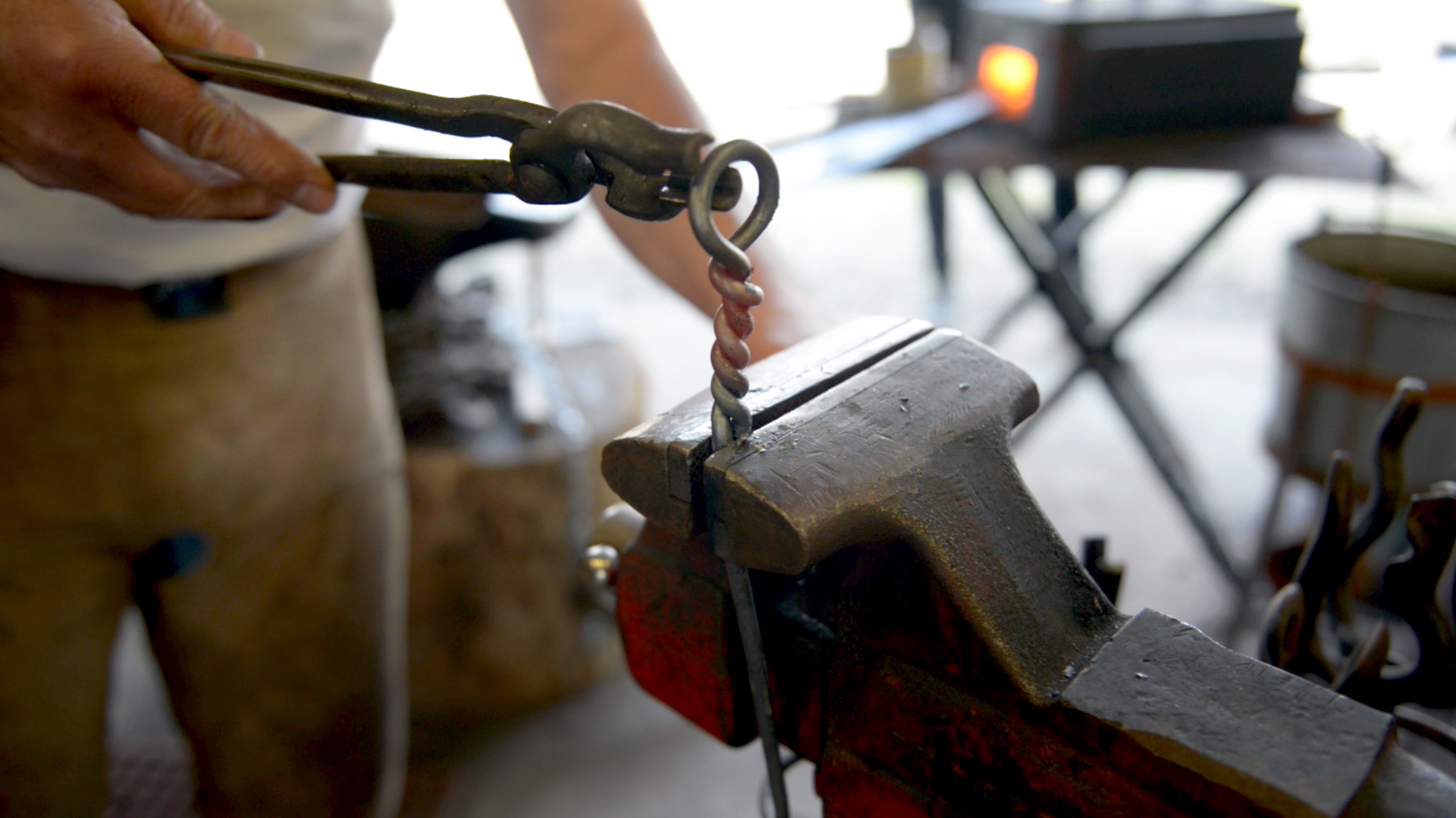
What kind of research do you do?
S: We do research to source materials. We had one lady that requested a large, mirrored organizer out of coconut wood. I thought, where are we gonna get coconut wood in rural Ohio?But you know what, we found it.
Are you more excited or intimidated by big projects?
S: I enjoy all of it, really. We have had, in my opinion, tremendous success, but I don’t just mean monetary success. I mean that we’ve been able to do a lot of different things, a wide variety of projects, all levels of responsibility, with very few negative outcomes. We’ll go the extra mile.
J: We don’t ship out anything that we wouldn’t want in our own homes as far as quality or customer service too because I think customer service is really important. That’s what I would want as a consumer.
How much trial and error is involved in wood and iron work?
S: It’s funny because people will receive their purchase and they’ll be very happy, but if it’s something that we’ve never made before or something a little more complicated, they don’t see the pile of scrap sitting on the shop floor because we’ve never done it and we had to come up with a way to do it. But that’s all part of it. If we get an order for a similar piece in the future, we’re ready to go. You learn something every day.
Do you connect with other crafters or wood and ironworkers on social media?
J: I have done that on both Facebook and Instagram, which is a great way to connect with people all across the world who do what we do. We share each other’s work and people are very supportive. Sometimes we give advice to other woodworkers, and when we ask questions, people are always very helpful.
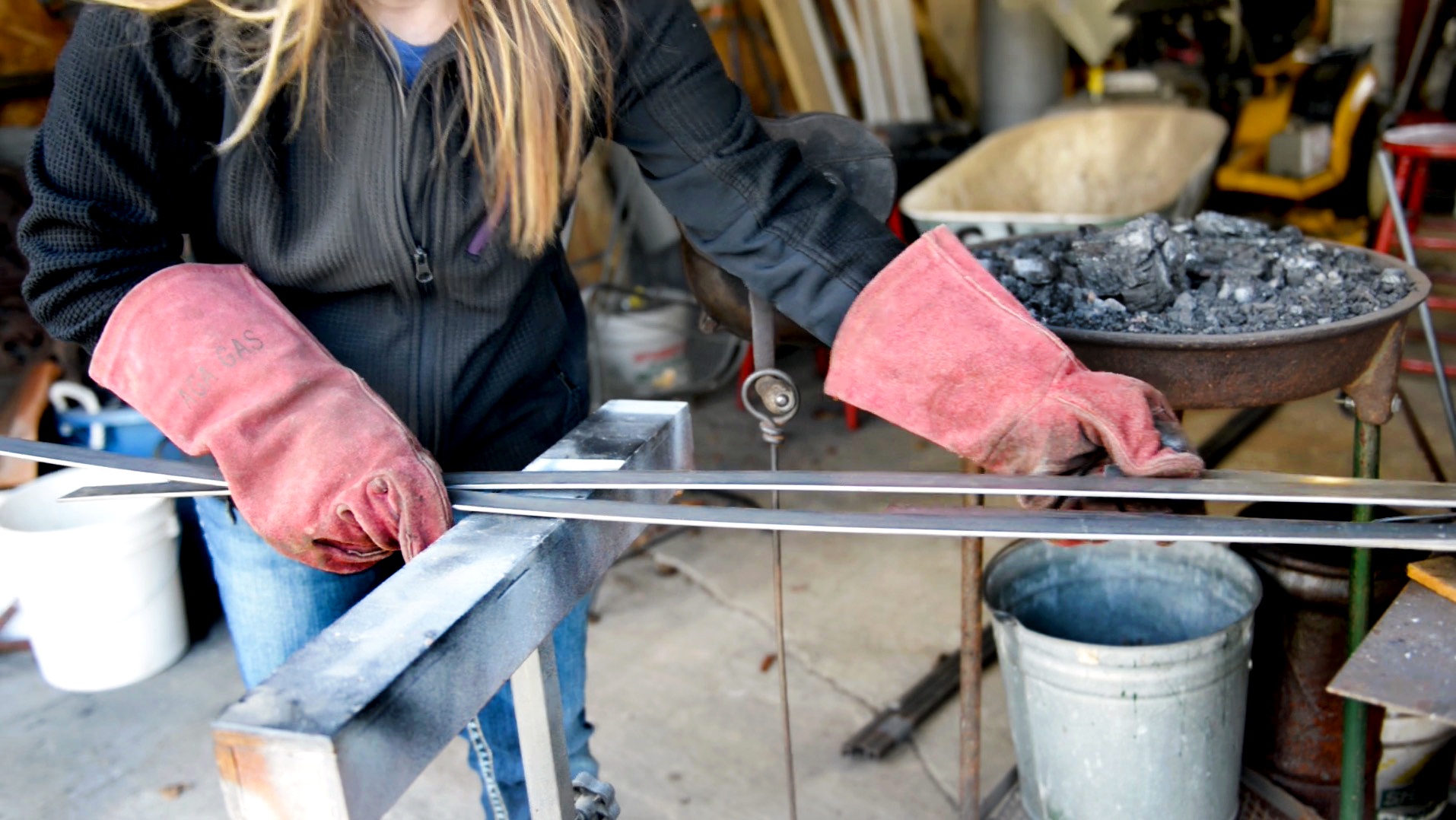
How else do you show off your work?
J: We did have a website a while back and we were showcasing big furniture before we started making the smaller wood and iron pieces too, but it was really hard to get hits on that website. We found that unless you were looking for our specific name or style of furniture, you wouldn’t know it’s out there. So in that way, I think social media is a great way to get our name out there and we’re here in little Ohio.
The neatest part of our adventure so far is that when I was younger, my dad had made things for mostly local people, whether it was furniture or contracting or remodeling. He was always making something for someone, but mostly it was local. What I was looking for was a way to get his work out there and showcase it, and Etsy was perfect because it’s international and once you’re online, anybody can look at your work. It’s crazy that something made in our little 1800s era shop in Ohio is now in Dubai or Australia.
How do you schedule and prioritize your time?
S: Scheduling really depends on what’s going on. If it’s something small, I can knock that out pretty quick and get it going. Things that take longer, like the quilt rack, we had five or six orders that came at the same time, and I just kept pushing the quilt rack off because I knew that I wanted to devote a reasonable amount of time to that.
J: Sometimes we try to have things in stock at holidays. While it’s hard to always know what people are going to want to order one year to the next, we do have a handful of items that are bestsellers constantly, so maybe we stock up on those in advance so we can ship them out at Christmas when we’re so busy. Of course everyone waits until the last minute to order a custom piece, too, but we have some backup.
What do you do when you come across a problem in your work?
S: We just find a way to get through it. It is what it is. You stand back and look at it and you try and figure out what didn’t work and why. If it’s a piece of tooling, a machine, maybe I didn’t pay enough attention to something along the way. If I’m cutting some trim on a cabinet or wall hanging, maybe I just didn’t look at it close enough and made a mistake.
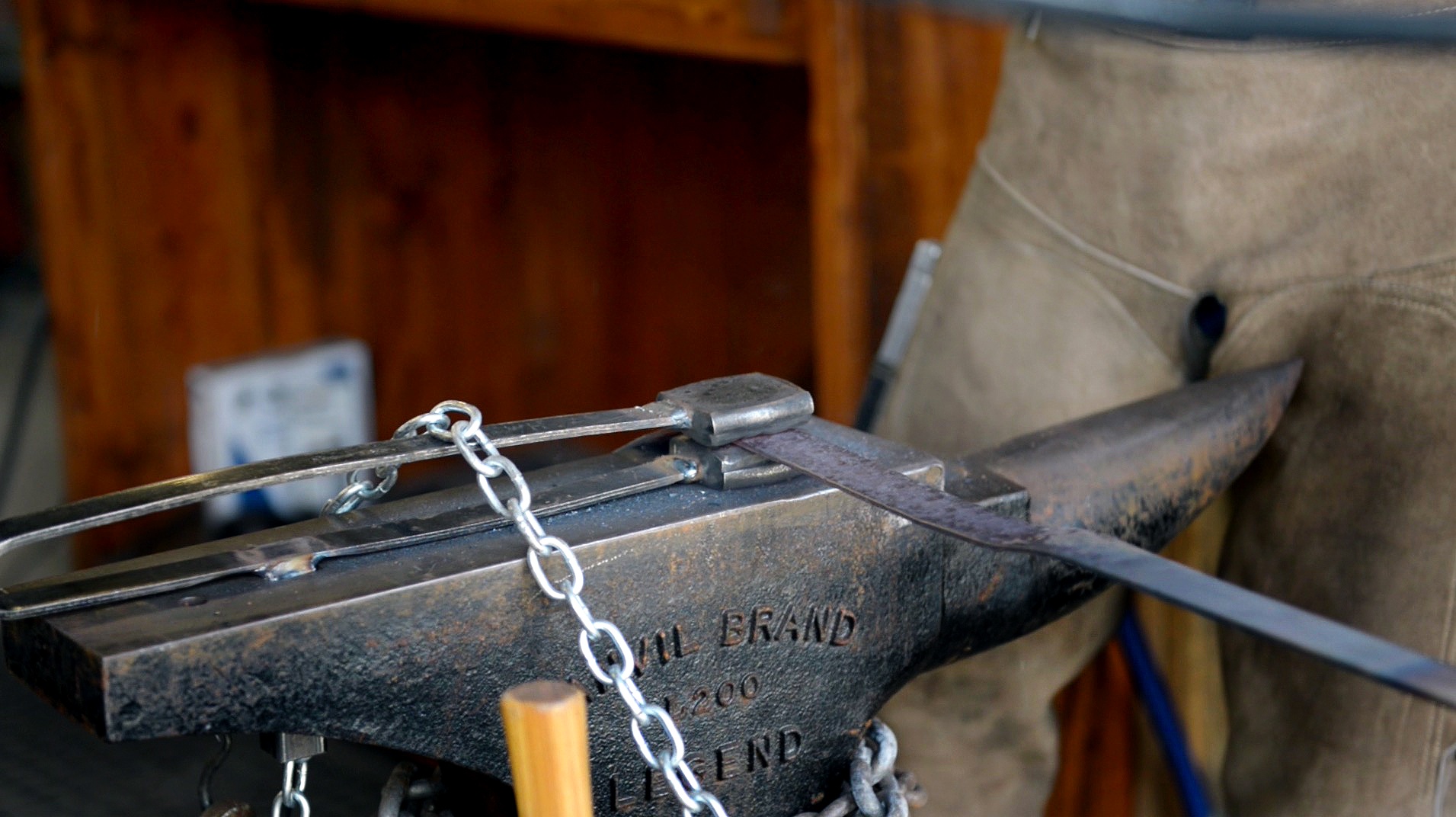
Is your work relaxing or is it a challenge?
S: Both. I’m not a sitter; I don’t like to just sit around, and I don’t think Jodi does either. I’m much more happy when my hands are engaged. There’s a fulfillment that you get from that. Obviously we love it or we wouldn’t be doing it.
J: I think we all understand that no matter what you do or what you make, all makers have the same drive. We really care.



